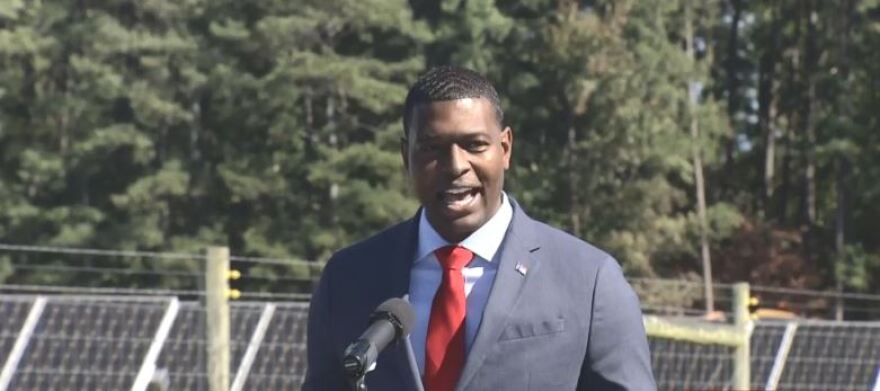North Carolina Gov. Roy Cooper signed an executive order to fight climate change that sets new goals for reducing the use of fossil fuels and promoting environmentally friendly policies in state government Monday.
Cooper signed Executive Order 80 in a ceremony next to a solar farm at SAS Institute in Cary. He said it "sets the goal for our state to achieve a 40 percent reduction in greenhouse gas emissions by the year 2025."
That's on the base year of 2005, according to the order. Cooper noted that Florence and other major hurricanes have devastated North Carolina in recent years, and said there's a scientific consensus that humans are contributing to climate change.
"This means sea level rise, stronger storms and erratic weather, from drought to floods. It's time for North Carolinians to do our part and take action," he said.
Cooper, a Democrat, is taking a different tack from the Republican-controlled General Assembly, which in recent years has pushed to limit environmental spending and regulations. That includes a 2012 law that bars local governments from using climate science to set their own definitions of sea-level rise to regulate development.
In remarks before the signing, state Environmental Secretary Michael Regan echoed the governor's remarks, saying that fighting climate change and improving the economy can go hand-in-hand.

"We must change how the state considers climate science in our policies, change how we generate and use energy, change how we rebuild and strengthen our communities, and change the current path that has put our health, environmental and economic security at risk," Regan said.
The governor is ordering state agencies to adopt environmentally friendly policies. He wants to increase the number of registered zero-emission vehicles and to promote the growth of clean-energy businesses.
He's also promising a state clean energy plan and is creating a North Carolina Climate Change Interagency Council, to be chaired by Regan.

Legislative leaders last week offered their own response to recent hurricanes: Appointing a legislative committee to examine more efficient storm debris removal and flood control techniques in river basins that flooded after Florence. The committee is expected to submit a report by 2020.
RELATED LINKS
- Oct. 29, 2018, "Executive Order No. 80: Executive Order NO. 80: North Carolina's Commitment to Address Climate Change and Transition to a Clean Energy Economy"
- Oct. 26, 2018, statement by Sen. President Pro Tem Phil Berger and House Speaker Tim Moore, "Berger, Moore Appoint Members to New Storm-Related River Debris Committee"







